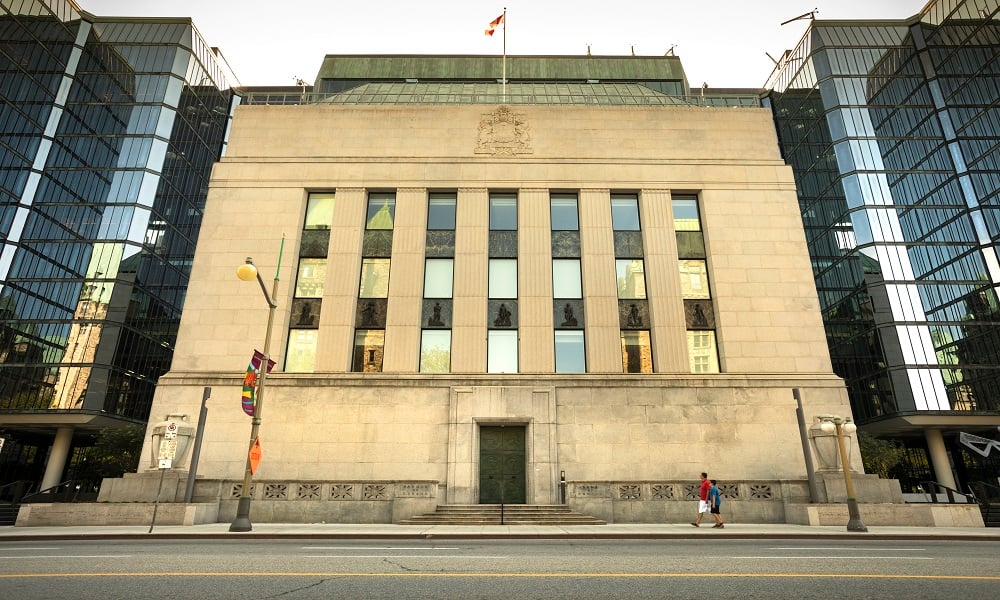Coronavirus weighs heavily on group’s recommendation, along with weak business investment

The C.D. Howe Institute’s Monetary Policy Council (MPC) has recommended that the Bank of Canada cut its overnight interest rate twice in the next two months and then hold until early 2021.
The MPC believes the rate should be lowered to 1.5% this week and to 1.25% in April after it completed its independent assessment of the monetary stance, which is in line wirth the Bank of Canada’s 2% inflation target.
William Robson, the Institute’s President and CEO, chairs the council, which make recommendations for the Bank of Canada’s upcoming interest-rate announcement, the subsequent announcement, and the announcements six months and one year ahead.
In its latest meeting, seven of the 10 members called for the bank to lower the overnight rate target to 1.5% on Wednesday, while the other three called for no change. Looking ahead to the April announcement, six called for a target of 1.25%, and four for a target of 1.5%. For six months out, the centre of gravity of the recommendations shifted down slightly further, with one member calling for 1%, six for 1.25%, and three for 1.50%. By March of 2021, one member called for 1%, five for 1.25%, and four for 1.50%.
In a release, the MPC reported that the reason for the downward tendency in the group’s calls for the overnight-rate target over the next six months was the potential impact of Covid-19, the coronavirus, on the global and Canadian economies.
It read: “Most members emphasized its negative implications for demand, citing sharp declines in equity markets and commodity prices, and downgraded forecasts for growth in many Asian and European economies. At this point, it is impossible to know how large and long-lasting these effects will be, but their implications for Canadian exports and consumer and business confidence are clearly negative.
“Several MPC members emphasized that financial market participants expect central banks to cut their policy rates – an expectation reflected in declining longer-term interest rates – and that the Bank of Canada should validate that expectation.”
A countervailing theme in the comments of many members was downgrades in their assessments of the Canadian economy’s potential growth rate. Negative supply-side impacts of Covid 19 were a consideration here and so were Canada’s recently demonstrated vulnerability to transportation disruptions.
“Several members cited continued evidence, exemplified by Teck Resources’ cancellation of its Frontier oil sands project and captured in a weak capital and repair expenditure survey from Statistics Canada this morning, of weak business investment, with ominous implications for future productivity growth.”
Further tempering influences on the group’s overall desire for a lower overnight rate target over time was the current strength of the Canadian housing market, and solid growth of employment and wages. Combined with the possibility that some factors contributing to weak growth in late 2019 and early 2020 were temporary, the group tended to feel that the Bank of Canada need not cut more than 25 basis points next week, and that it could await confirmation of some of the negative influences from abroad before cutting further.



